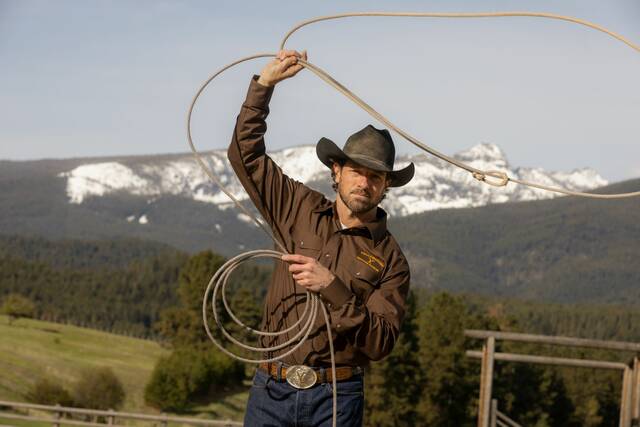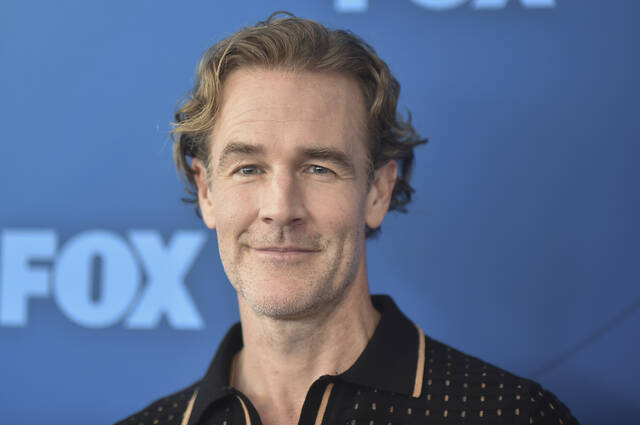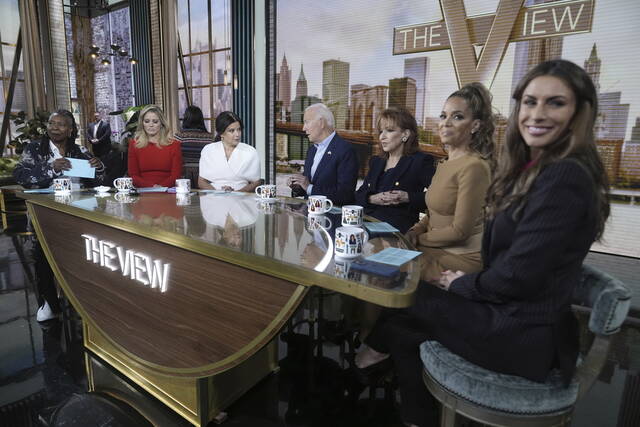Trib Total Media TV writer Rob Owen answers reader questions every Wednesday at TribLive.com in a column that also appears in the Sunday Tribune-Review.
Q: Are you noticing a large shift now of channeling shows to the network pay sites? Are these networks trying to move more shows to their owned pay sites? Are they moving their niche programs more to revenue generation away from their terrestrial networks? Is this a way for networks to generate more revenue and take it away from cable companies?
— Chuck via Facebook
Rob: A lot to unpack here but yes, media companies are now spending a lot more on their money-losing streaming services and less on their profitable broadcast networks because they see streaming as the future and broadcast as a declining business.
OTT (over the top) streaming services by definition cut out the middle man (cable/satellite delivery systems) but that’s complicated, too, since at least one media company, Comcast, owns TV stations, cable systems that also provide internet service and a streaming service, Peacock. For Comcast in particular, it’s a tricky balancing act. And yet it’s NBC alone who has floated the idea of dropping the 10 p.m. hour of network programming.
While sometimes it’s a niche show that moves from linear TV to streaming (see: “Doctor Who” going from BBC America to Disney+ in 2023), we’ve also seen less niche shows make the move, like “SEAL Team” (CBS to Paramount+) and “Dancing with the Stars” (ABC to Disney+) in an effort to draw more older viewers to streaming services that typically appeal to younger consumers.
At the dawn of streaming, a viewer’s age didn’t matter to streaming services, just paying customers. But with all the major streaming services except Apple TV+ adding a less expensive, ad-supported tier by the end of 2022, it will be interesting to see if advertisers’ thirst for younger eyeballs, so prominent for decades in linear television, migrates to streaming, too.
In the past year, there’s also been a shift in media companies’ business strategies. Until Netflix saw a 200,000 subscriber loss in April, Wall Street seemed most interested in streaming service subscriber growth over profit on the theory that the more subscribers a streaming service has, the more money it will be able to make in the long run. But with streaming services maxing out the U.S. market for potential new subscribers, the Wall Street focus has shifted back to profit over subscriber growth resulting in still more changes in media company priorities.
Q: We recently got rid of cable but have quite a few streaming services. One is Paramount+. I thought that since the show “Yellowstone” was on Paramount Network, it would also be on Paramount+, but it’s not there. Can you please clarify that for me?
— Chris via email
Rob: This is a good question because the assumption makes total, logical sense if all streamers behaved in the same way. But they don’t.
While many prioritize putting their own shows on their own streaming service, Paramount Global, which owns Paramount Network and Paramount+, previously cut deals left and right for the benefit of an immediate cash grab. It’s why Paramount Global-owned “South Park” episodes are on HBO Max (to compensate, “South Park” specials stream on Paramount+) and why Paramount Network sold streaming rights for “Yellowstone” to Peacock.
In retrospect, that “Yellowstone”-to-Peacock deal looks like a mistake. To compensate for the lack of “Yellowstone” on Paramount+, Paramount Global ordered “1883,” a “Yellowstone” prequel series, that premiered in December 2021 on Paramount+, and the upcoming “1923” (Dec. 18) also on Paramount+. The original “Yellowstone” returns for its fifth season at 8 p.m. Nov. 13 on Paramount Network.
Today, most streaming services would prefer to have their owned shows on their streaming platforms — but not always.
Warner Bros. Discovery, which until the WarnerMedia-Discovery merger closed earlier this year had sought to keep its programming for HBO Max, has now adopted a policy of selling programs more liberally to outside platforms, which is also what at least one Wall Street analyst wants to see Paramount Global go back to doing.
Q: “The Masked Singer” has now been pre-empted several times by baseball. Will those three episodes ever be broadcast?
— Becca, Greensburg
Rob: Post-season baseball routinely causes last-minute schedule changes. This year, “Masked Singer” got caught up in those changes. And, yes, those pre-emoted episodes have/will air.
A new episode aired Nov. 6 and Wednesday night episodes will resume Nov. 9 (if you missed any episodes, they’re posted at Fox.com and on Hulu). A repeat scheduled for Nov. 23 will now be an original episode. And an original episode will air Thanksgiving night, Nov. 24.
Q: Any word on the third season of “First Wives Club” on BET+?
— Patrick via email
Rob: Season three of “First Wives Club” debuts on streaming service BET+ on Nov. 17.
Q: A rival of Doug Mastriano’s had a commercial running with a clip from a newscast featuring KDKA-TV’s Heather Abraham. Curious if they need permission from KDKA or Heather to use that clip? DO they pay them?
— Darlene via email
Rob: There is no payment and no need to request approval. This likely falls under the “fair use” doctrine of copyright law that allows small portions of a program to be used without compensation or approval.
That doesn’t mean newscasters appreciate ending up in political ads – Philadelphia’s KYW-TV anchor Jim Gardner expressed his displeasure earlier this year after appearing in a Mehmet Oz ad – but there’s also not much they can do about it.
KYW general manager Bernie Prazenica told the Philadelphia Inquirer that federal law prohibits the station from censoring or altering an ad from a legally-qualified candidate.








